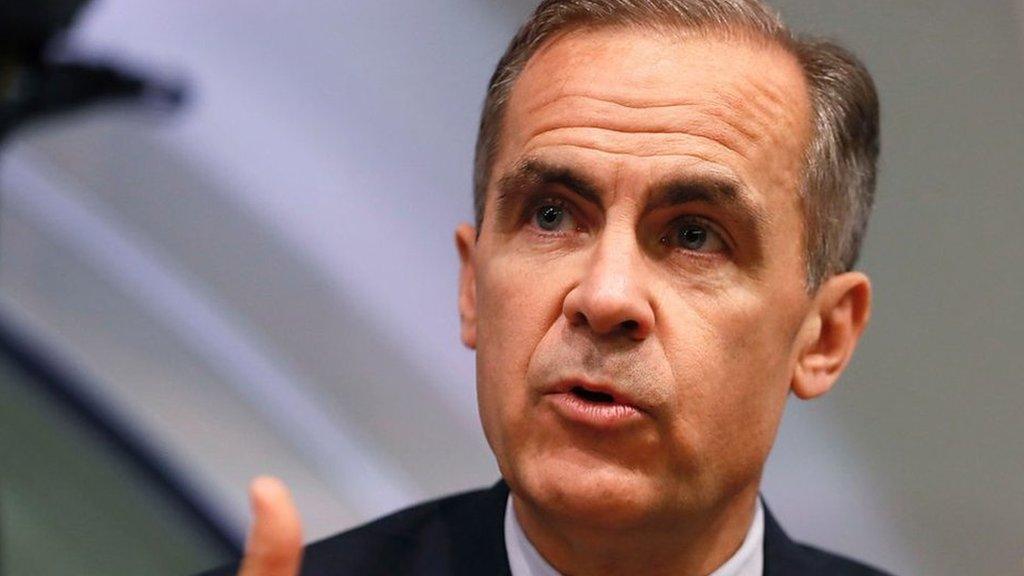How would an interest rate rise of 0.25% affect me?
- Published

The governor of the Bank of England, Mark Carney, has suggested that interest rates could rise "in the near term".
Many experts think that could mean as early as November.
So how would a rate rise of 0.25%, to 0.5%, affect borrowers and savers?
We know there are more savers than borrowers, so more people are likely to be pleased at the prospect of rising rates, than those who will be disappointed.

Will my mortgage be affected?
According to the Bank of England, 43% of homeowners are on variable or tracker rates. In theory most of those will see their mortgage repayments rise when the Bank of England raises rates. By contrast 57% of borrowers are on fixed-rate deals, and will not be affected immediately.
Currently 90% of new home-owners are on fixed deals, and they tend to have the largest loans. But depending on when their two or five-year term finishes, borrowers will inevitably face higher repayments eventually.
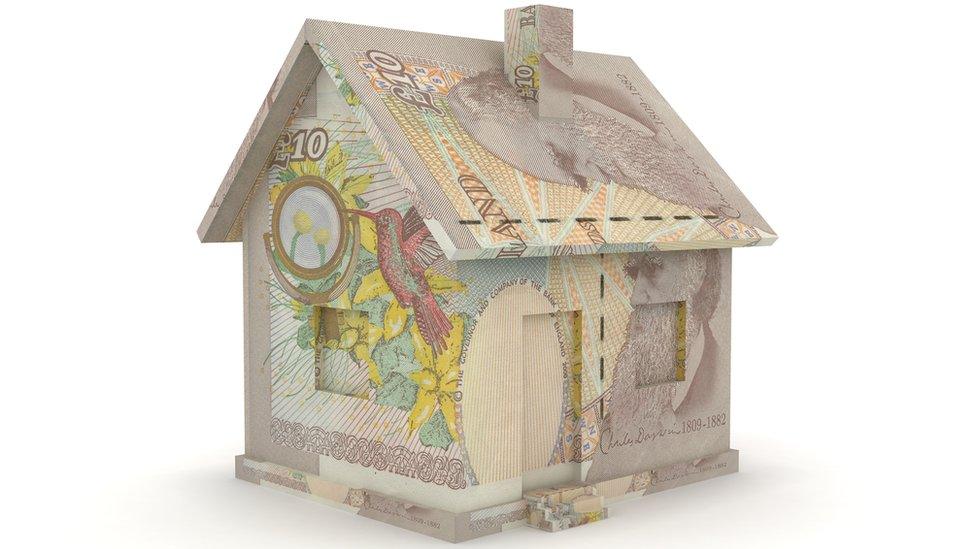

How would a rise affect repayments?
According to the Nationwide Building Society, a 0.25% rise in base rates would have a modest affect on anyone on a standard variable rate (svr). On the average mortgage of £125,000 an increase of 0.25% would increase monthly payments by £15 to £665. That would amount to an extra £185 per year.
The following table assumes there is 20 years left on a mortgage, and that the rate rises from the current average of 2.56% to 2.81%.
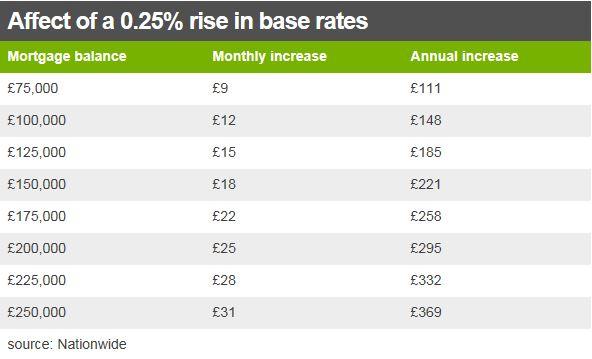

Long-term impact
As Mark Carney is fond of reminding us, the rises in base rates will be small, and the pace will be gradual.
So while the impact of the first hike may be small, someone with a mortgage advance of £150,000 could eventually find themselves paying as much as £161 a month more, according to figures supplied by the Halifax, Britain's largest lender.
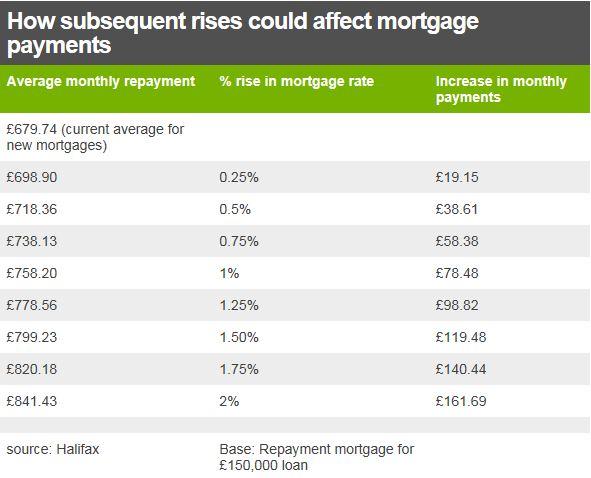

Savers
The average easy-access savings account is currently paying 0.35% in annual interest. Some banks accounts are paying as little as 0.01%. So any rise in base rates could be a welcome boost for savers, even though any increase would be small.
One other problem in recent years has been that banks and building societies have been able to borrow money from the Bank of England very cheaply, so they haven't needed to compete for deposits from savers.
The Funding for Lending Scheme (FLS) and the Term Funding Scheme (TFS) have therefore helped to depress returns for savers.
"The good news for savers is that both the FLS and TFS are ending at the beginning of 2018, so perhaps providers will start to need funds from savers once more," said Anna Bowes, a director of Savings Champion.
"This, as well as a Bank of England base rate rise, will hopefully really make a difference."
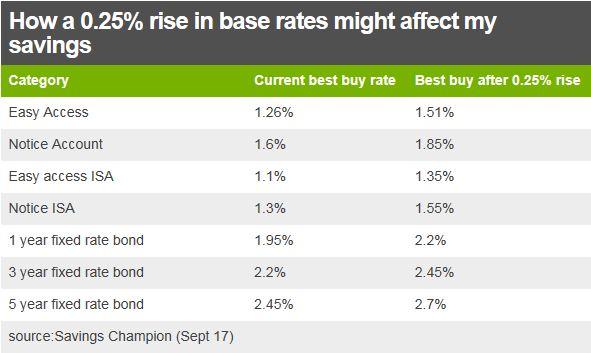
- Published29 September 2017
